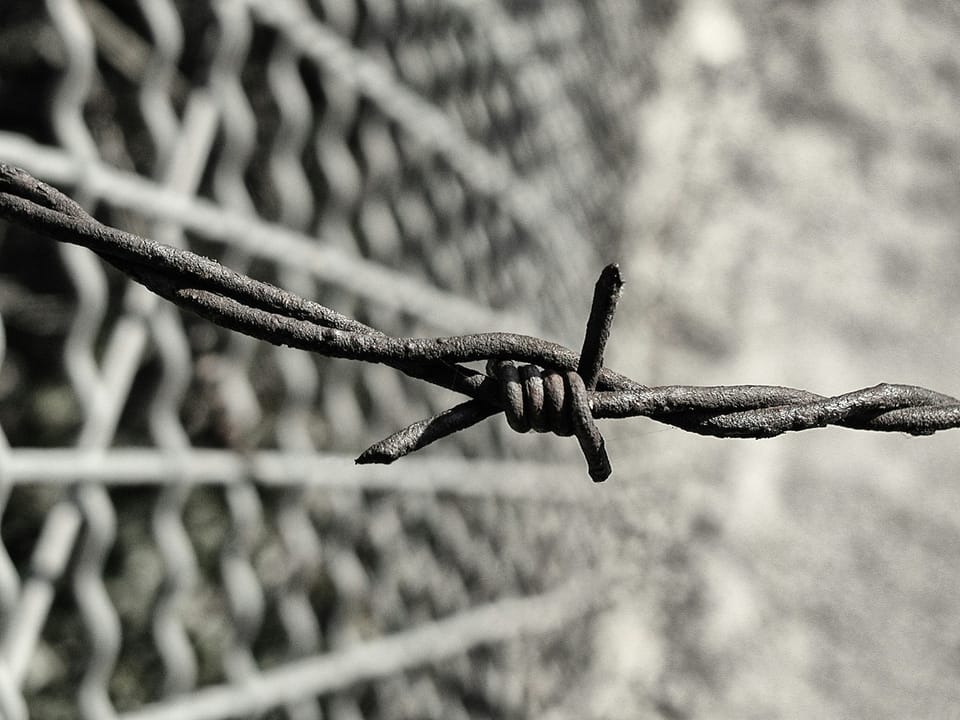
Photo by Marco Bianchetti on Unsplash
(You can read Part 1 here.)
It is a fact that accusations of antisemitism are all too often used to silence voices critical of Israel. It is also a fact, however, that antisemitism sometimes does lie embedded within, and sometimes even animates, those voices, like, for example, the antisemitism enshrined in both the original version of Hamas’ charter from 1988 and the revised version of 2017. The 1988 version, for example, explicitly invokes The Protocols of The Elders of Zion, as proof that the goal of Zionism is world domination.
The Zionist plan is limitless. After Palestine, the Zionists aspire to expand from the Nile to the Euphrates. When they will have digested the region they overtook, they will aspire to further expansion, and so on. Their plan is embodied in the “Protocols of the Elders of Zion”, and their present conduct is the best proof of what we are saying.
First published in Russia in the early 1900s, the Protocols purports to expose the Jewish plan to rule the world. As Hamas understood things in 1988, in other words, the State of Israel was not simply an occupying power that needed to be resisted. Rather, it was the political manifestation of something far more sinister and far-reaching, a Jewish plot to turn the world into one big Jewish state. The fight against Israel, therefore, was not just the fight for Palestinian freedom; it was a fight to ensure the freedom of the entire world. (If you’ve never heard of the Protocols, these articles, by Michael Fox and Steven J. Zipperstein are worth reading.)
On the surface, the 2017 revision of the charter suggests that Hamas has had a substantive change of heart. It contains in Article 16 an explicit disavowal of antisemitism, “affirm[ing] that [Hamas’] conflict is with the Zionist project not with the Jews because of their religion;” and, in Article 17, the document identifies “anti-Semitism and the persecution of the Jews” exclusively with “European history,” asserting that those phenomena have no place in “the history of the Arabs and the Muslims or their heritage.”
Taken at face value, these words suggest that Hamas now considers antisemitism to be completely alien to its purpose and goals. Those statements, however, stand in direct contradiction to other language in the document that essentially reproduces the claims about the Jews that the 1988 charter took from the Protocols. This is from Articles 14 and 15:
The Zionist project is a racist, aggressive, colonial and expansionist project based on seizing the properties of others…The Zionist project does not target the Palestinian people alone; it is the enemy of the Arab and Islamic Ummah posing a grave threat to its security and interests [and also] to international security and peace and to mankind and its interests and stability.
The 2017 charter may not mention the Protocols at all; it may substitute the word Zionists for Jews; and it may contain language nominally disavowing antisemitism; but Hamas still clearly defines its anti-Zionism not in opposition to the State of Israel per se—a position which is not, in itself, antisemitic—but rather to the same campaign of world domination that the Protocols attributes to the Jews. The change in Hamas’ position, in other words, is more cosmetic than anything else.
I thought about the transitive nature of this rhetoric a lot as I tried to figure out how to respond in the immediate aftermath of Hamas’ October 7th attack. On the one hand, not to acknowledge what Hamas did as an expression of Palestinian resistance would be to deny both the reality of Israel’s occupation and the fact that the Palestinians have the right to resist that occupation on their own terms. On the other hand, not to call out at the same time the antisemitism in Hamas’ charter would be to allow it to remain an unexamined subtext in any discussion of the attack, one that neither I nor any other Jewish person should be expected to set aside, minimize, or ignore.
I know it may sound like I’m trying to use antisemitism to “both sides” the Palestinian-Israeli conflict, but I am not. There is no question that the current Israeli government is using Hamas’ attack as a pretext for furthering the ethnic cleansing of the Palestinians that has been woven into Israel’s DNA since its founding; and there is also no question that the unspeakable scale and brutality of Israel’s response to that attack should disabuse anyone who still believes, as I once did, in Israel’s inherent moral superiority. What we are witnessing in Gaza is the logic of military occupation being carried out to its completely one-sided conclusion.
Calling out Hamas’ antisemitism changes none of that. What it does do, however, is connect Hamas’ overall agenda (which is not necessarily the agenda of the Palestinian people), and, in particular, the atrocities the Hamas fighters committed, to other instances of antisemitism worldwide: the chants, for example, of “Jews will not replace us” at the 2017 Unite The Right rally in Charlottesville, and the Poway Synagogue shooting in Pittsburgh, and the Halle Synagogue shooting in Germany; and the resurfacing of the blood libel in Turkey; and the antisemitism that is causing many Jews in France to feel they need to hide their Jewish identity—not to mention my personal experiences of antisemitism, those I told you about above and those I have not included in this essay, which, though their violence may only be implicit and implied, continue to this day.
For me, in other words, and for all the Jews I know, antisemitism is personal—how could it not be?—and so I take it personally when, in discussions about Israel and Palestine, someone refuses to acknowledge the presence of antisemitism when I point it out to them; or tells me that, in light of Israel’s behavior, I should not make calling antisemitism out a priority; or that I am being too sensitive, or am too fragile, and that I am therefore seeing antisemitism where it isn’t; or assumes that the only reason I choose to call antisemitism out is my presumed Jewish loyalty to Israel.
That person and I might very well agree both in our opposition to the Israeli occupation and in our understanding of the history that has culminated in Israel’s current campaign, as one Israeli official put it, to “flatten Gaza.” Unless there are compelling reasons to do otherwise, however—and I want to repeat that, because it’s important, unless there are compelling reasons to do otherwise—if I have to choose between affirming what we agree on and confronting antisemitism, I will always choose the latter. Not because I think calling out antisemitism is more important than the Palestinian men, women, and children whose lives are currently being torn apart by Israeli forces, but because when someone in conversation with me is willing to give antisemitism a free pass, I find it impossible not to ask whose side they’re really on.
Part Three of this series, Whose Side Are You On?, will post tomorrow. I have turned comments on. If you would like to let me know what you think by responding directly to the post, rather than emailing me, I’d love to hear from you. Also, if you find my newsletter valuable, please consider forwarding it to others who might do so as well. I am trying to grow my mailing list. Thank You!
Thanks for reading It All Connects...! Subscribe for free to receive new posts and support my work.
It All Connects is for anyone who grapples with complexity—of identity, art-making, culture, or conscience—to make a difference in their own life and, potentially, in the life of their community.






Member discussion